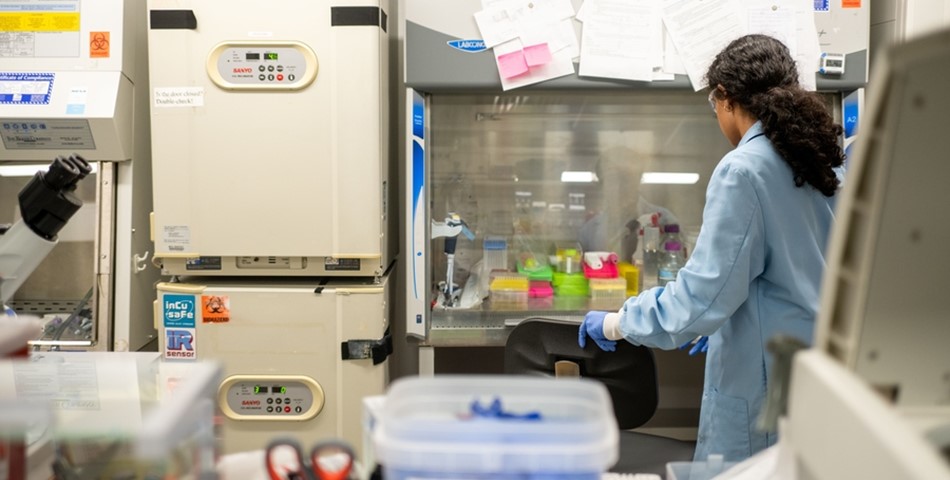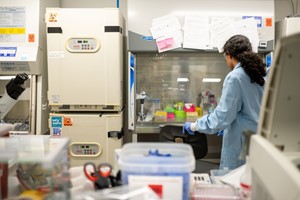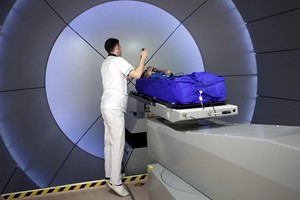The Biswas Family Foundation and the Massachusetts Institute of Technology (MIT) have launched the Biswas Postdoctoral Fellowship Program, a major initiative under the MIT Health and Life Sciences Collaborative (MIT HEALS) aimed at accelerating innovation in health care. Funded by a $12 million gift from Hope and Sanjit Biswas, the program will support outstanding postdoctoral researchers whose work bridges life sciences, artificial intelligence, diagnostics, and public health, with the goal of delivering real-world impact at scale.
The fellowship will award five four-year positions annually over the next four years beginning in early 2026. The program is open to early-career scientists committed to transforming human health through cross-disciplinary research — from low-cost diagnostics and AI-powered discovery to the integration of health with economics, business, or the humanities.
“An essential goal of MIT HEALS is to find new ways and opportunities to deliver health care solutions at scale, and the Biswas Family Foundation shares our commitment to scalable innovation and broad impact. MIT is also in the talent business, and the foundation’s gift allows us to bring exceptional scholars to campus to explore some of the most pressing issues in human health and build meaningful connections across academia and industry. We look forward to welcoming the first cohort of Biswas Fellows to MIT,” says MIT president Sally Kornbluth.
“We are deeply honored to launch this world-class postdoctoral fellows program,” adds Anantha P. Chandrakasan, MIT’s chief innovation and strategy officer and head of MIT HEALS. “We fully expect to attract top candidates from around the globe to lead innovative cross-cutting projects in AI and health, cancer therapies, diagnostics, and beyond. These fellows will be selected through a rigorous process overseen by a distinguished committee, and will have the opportunity to collaborate with our faculty on the most promising and impactful ideas.”
Angela Koehler, faculty lead of MIT HEALS, professor in MIT’s Department of Biological Engineering, and associate director of the Koch Institute for Integrative Cancer Research, emphasized the strong alignment between MIT HEALS and the Foundation’s mission to “leverage scientific and technological advancements to revolutionize health care and make a lasting impact on global public health.”
“Health care is a team sport,” Koehler says. “MIT HEALS seeks to create connections involving investigators with diverse expertise across the Institute to tackle the most transformative problems impacting human health. Members of the MIT community are well poised to participate in teams and make an impact.”
MIT HEALS also plans to work more closely with hospitals and medical schools to identify real-world problems and carry research all the way through clinical trials.
The Biswas Family Foundation’s track record of forging high-impact institutional partnerships has already demonstrated a similar approach. “The Biswas family has a history of enabling connections and partnerships between institutions that each bring a piece to the puzzle,” Koehler says. “This could be a dataset, an algorithm, an agent, a technology platform, or patients.”
“The Biswas Family Foundation is proud to support the MIT HEALS initiative, which reimagines how scientific discovery can translate into real-world health impact. Its focus on promoting interdisciplinary collaboration to find new solutions to challenges in health care aligns closely with our mission to advance science and technology to improve health outcomes at scale,” Biswas says.
“As part of this commitment,” Biswas adds, “we are especially proud to support outstanding postdoctoral scholars focused on high-impact cross-disciplinary work in fields such as computational biology, nanoscale therapeutics, women’s health, and fundamental, curiosity-driven life sciences research. We are excited to contribute to an effort that brings together cutting-edge science and a deep commitment to translating knowledge into action.”
Koehler notes that AI and machine learning offer vast opportunities to analyze disease, understand biological mechanisms, and improve treatment outcomes. “AI and computational systems biology can improve the accuracy of diagnostic approaches, enable the development of precision medicines, improve choices related to individualized treatment strategy, and improve operational efficiency within health care systems,” she says. “Sanjit and Hope’s support of broad initiatives in AI and computational systems biology will help MIT researchers explore a variety of paths to impact human health on a large scale.”
The convergence of diverse fields—data science, biology, and high-throughput experimentation—is where Koehler sees the future of innovation. “Advances in high-throughput experimentation to develop large datasets may couple well with the development of new computation or AI tools,” she adds. “The four-year funding term provided by the postdoctoral fellowship is long enough to enable fellows to think big and take on projects at interfaces, emerging as bilingual researchers at the end of the program.”
“I’m incredibly grateful to the Biswas Family Foundation for their generous support in enabling transformative research at MIT,” Chandrakasan says.
By Michaela Jarvis













